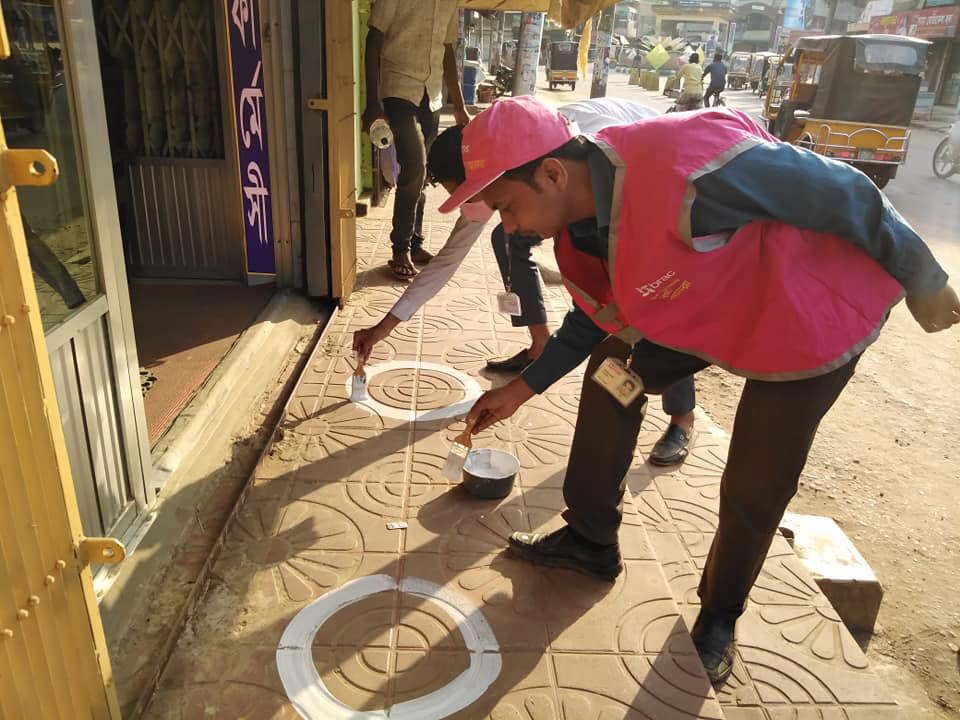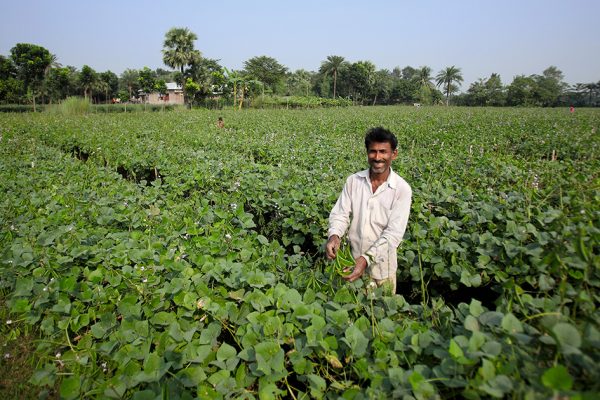How BRAC Microfinance is responding to the coronavirus outbreak in Bangladesh
Reading Time: 3 minutes
Client protection is key, both in supporting people through financial shocks and by sharing reliable, life-saving information.
For a country like Bangladesh, the COVID-19 pandemic is much more than a public health crisis. With the economy coming to a standstill, people employed in the informal sector – nearly 80% of the total workforce – are hit the hardest.
Rural producers, small businesses, petty traders, street vendors, living in rural, urban and peri-urban areas, are seeing a steep decrease in their income. Many depend on microfinance as their source of finance to invest in businesses and cover personal expenses. Similarly, microfinance institutions will face challenges in conducting operations as usual.
What responsibilities can a microfinance institution take to support its clients and the communities it serves in this crisis?
Client protection is key, both in supporting them through financial shocks and by sharing reliable, life-saving information.
BRAC Microfinance has served communities across Bangladesh for 47 years. Our field staff have created relationships built on trust and familiarity, providing financial services that have gone hand-in-hand with development interventions, as part of BRAC’s holistic approach.
In this crisis, our commitment to stand beside those who are the most vulnerable remains stronger than ever.
Protect front line heroes first
More than 30,000 of BRAC’s microfinance staff are based at the field level across Bangladesh in more than 2,000 branch offices. We are prioritising their safety first.
Clear instructions were sent very early, listing the precautions to be taken for the virus. Protective equipment such as masks and gloves were provided, and a number of preventive steps were taken across the organisation, prioritising the health and well-being of our colleagues. Over 11,000 protective masks and almost 13,000 gloves were sent to our field offices. 29,645 people were trained in two weeks through a training module on COVID-19, which was sent to all of our staff’s laptops, and the smart devices primarily used to collect loan instalments. Credit officers and account officers – those directly involved in handling cash, were instructed to wear gloves and masks. Money collected was placed inside envelopes, which were then destroyed once the payment reached area offices.

Protecting clients through financial shocks
A day before the lockdown, we announced a stop to loan classifications until June 30, as per the decree issued by the regulatory body in Bangladesh. This meant that default clients will not be classified as a defaulter and their borrower status will not change. Clients do not have to pay any instalments for the next two months and worry about interest accumulation. They can pay instalments only if they want to with no restrictions on disbursing new loans.
We also halted all field activities concerning loan and savings collection from 24 March 2020 to 2 April 2020, later extended up to April 9. We disbursed previously authorised loans and kept our branches open so that clients can withdraw their savings.
Sharing reliable, life-saving information
A pandemic is especially challenging in a country like Bangladesh, with a population of more than 160 million – almost 80% of whom live in rural areas – with limited access to the internet and reliable information. Misinformation and rumours can spell disaster.
Building mass awareness is key and we have a 30,000 strong workforce in the field. BRAC’s field staff have worked with communities for years. Our clients and participants have grown to trust them, especially with life-saving, reliable information at a time like this.
Our staff are playing an active role in coordinating with other programmes of BRAC to drive the organisation’s overall response.
After completing their essential training on COVID-19, our staff went door-to-door with life-saving messages. We have set up over 4,600 handwashing zones in different regions, and distributed over 500,000 liquid soap sachets and almost 6,000 soaps among our clients. COVID-19 prevention messages are being played through loud-speakers fixed on rickshaws that are traveling in villages across the country.
Our customer service call centres have so far reached 10,900 clients with critical information about COVID-19. We are aiming to reach 33,000 by the end of April. Simultaneously, we have delivered 2.8 million voice SMS to our clients with preventive information.

The real heroes are fighting on the ground
BRAC has taken initiatives such as sending voice calls and letters from the senior leadership to keep staff motivated. Constant communication and adjusting action plans from insights from the ground has been one of the key areas of the microfinance programme’s strategy to fight this battle.
But it is far from over, and the future of the financial sector of the country faces many questions. Regulators, financial institutions, policymakers have to think about the entire ecosystem and should collectively work together to stand by the millions of people who have been the lifeline of our economy.
Shams Azad is the chief operating officer of BRAC’s microfinance programme in Bangladesh.





